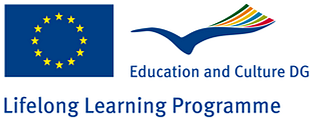DISCO II (duration: November 2010 - October 2012) is the follow-up project to DISCO I. It improves and extends terminological support for the description and translation of abilities, skills, and competences in the contexts of the labour market and education by offering the following services:
- three new languages: Italian, Slovakian, Spanish;
- an extended DISCO Thesaurus that will include phraseological competence descriptors for the sectors of health, social services, environmental protection and information technology, as well as a non-domain-specific area; and
- an upgraded version of the DISCO website with additional functions that create, compare and translate competence profiles and learning outcome descriptions within European transparency documents.
Presentations of the final conference in Rome, 18 October 2012:
Methodology
The DISCO Project follows the European Parliament and Council definitions of knowledge, skills, competences, and learning outcomes (EQF Recommendation 2008):
- 'Knowledge' means the outcome of the assimilation of information through learning. Knowledge is the body of facts, principles, theories, and practices that is related to a field of work or study. In the context of the European Qualifications Framework, knowledge is described as theoretical and/or factual.
- 'Skills' means the ability to apply knowledge and use know-how to complete tasks and solve problems. In the context of the European Qualifications Framework, skills are described as cognitive (involving the use of logic, intuition and creative thinking) or practical (involving manual dexterity and the use of methods, materials, tools and instruments).
- 'Competence' means the proven ability to use knowledge, skills and personal, social, and/or methodological abilities in work or study situations and in professional and personal development. In the context of the European Qualifications Framework, competence is described in terms of responsibility and autonomy.
- 'Learning outcomes' means statements of what a learner knows, understands, and is able to do upon completion of a learning process. These are defined in terms of knowledge, skills, and competence.
In general, however, DISCO is based on a comprehensive understanding of skills and competences that also include personal attitudes, values, behavioural patterns, and all vocational abilities, whether they have been acquired formally or informally.
We distinguish the following skill types:
A thesaurus is a controlled vocabulary. Its concepts are connected via relationships, e.g. broader term/narrower term, synonyms. A concept can be understood as a cognitive unit of meaning or an abstract idea; it is sometimes defined as a "unit of knowledge". Thus, in IT, a thesaurus is often seen as a knowledge representation of a topic – in our case skills and competences – that offers the possibility of making explicit existing relationships between concepts.
When deciding which concepts should be represented within the thesaurus, we follow two principles:
The following methods are used to identify which concepts our intended user groups require:
Data Sources
DISCO's database is provided by the following comprehensive national skills compilations:
DISCO II phrases have been developed for four sectors - IT, environmental protection, health, and social sciences - based on the collection of about 200 Certificate Supplements and occupational profiles in partner countries, and the analysis of 2000 – 3000 competence description statements in ten European languages.
The project consortium consists of experts in the field of VET and competence classifications as well as researchers, promoters of transparency documents, universities and educational consultancy institutions.
|
|
|

This project has been funded with support from the European Commission. This publication reflects the views only of the author, and the Commission cannot be held responsible for any use which may be made of the information contained therein. |
|















 Thesaurus Explorer
Thesaurus Explorer Project information
Project information Help
Help Contact
Contact